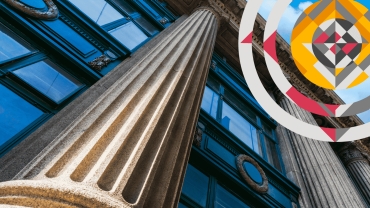
BUA categories
The BUA excludes the deduction of VAT for the following categories of expenditure:
The maintenance of a certain social status ('stand expenditure')
The exclusion of the deduction of VAT on expenses incurred for the purpose of maintaining a certain social status is drafted in line with the Dutch income tax rules, where, just as in Dutch income tax, the relevant (VAT) provision has little practical significance. Therefore, we will not discuss this further in this publication.
Giving business gifts or other gifts to non-deductible persons
In relation to business gifts, one should think of gifts that the entrepreneur provides for business reasons to his customers, suppliers and the like. ‘Other gifts’ include benefits provided by the entrepreneur to foundations and institutions that are (mainly) not entitled to deduct VAT. For each business gift or donation, you must assess whether the recipient, had he incurred the expenses himself, would (primarily) not be entitled to deduct the VAT. You may therefore not deduct the VAT on the costs if the recipient of your gift, if he/she were to purchase it him/herself, can deduct only a maximum of 30% VAT and if the value of all gifts that you provide to this recipient in a year amounts to more than 227 euro (excluding VAT). If a deduction limitation pursuant to the BUA is not an issue, you may still be faced with a VAT levy on a fictitious supply.
Allowances to staff members
The ‘BUA’ mentions a number of forms of provision to staff. The deduction of VAT on the costs attributable to these allowances is excluded if the employer exceeds the 227 euro limit (excluding VAT) per person per year.
Providing accommodation
One example is the provision of housing for an employee, without stipulating a separate fee.
The provision of (temporary) accommodation in the Netherlands to foreign employees, without any remuneration being stipulated in return, may also fall under this category. This also applies to foreign temporary workers. Case law shows that the concept of accommodation is not limited to the permanent residence of the temporary agency workers.
The provision of housing does not always lead to an adjustment. For example, the Supreme Court ruled in November 2020 that also when providing accommodation the business interest - depending on the specific circumstances - may prevail and any private enjoyment may be subordinate to it. Relevant is whether there are special circumstances that force the company to provide certain housing for employees. If so, a VAT adjustment pursuant to the BUA is not an issue.
Providing facilities for sport and recreation
Examples include making available sports facilities, fitness rooms and holiday resorts, making non-business trips or excursions for the benefit of the staff.
Paying out wages in kind
For example, you can think of Christmas gifts, telephone subscriptions, computers, courses with a (partly) private character, books and certain types of clothing.
Other benefits in kind for personal use of staff
A residual category for the benefits in kind that do not fall under any of the other categories.
Private transport
Private transport of personnel can take place in various ways.
Company car
The ‘BUA’ does not apply to the private use of company cars. For VAT purposes, this use is taxed differently: via the notional performance (see the section: Fictitious supplies. The VAT due on deemed supplies).
Public transport tickets
The ‘BUA’ must be applied to the provision of public transport tickets to staff. This concerns persons who are employed by the entrepreneur at the time the provision is made.
Bicycle of the company
The ‘BUA’ has a separate scheme for bicycles (including E-bikes). Bicycles with a combustion engine fall outside the scheme. The VAT on the purchase or lease of a bicycle that an employer provides to his employee for commuting purposes is deductible up to a maximum of 130 euro per employee, regardless of whether the bicycle is more expensive than 749 euro (130 is 21/121 of 749 euro). A possible own contribution of the employee for the bicycle is deducted when calculating the 749 euro limit. VAT must however be paid from this own contribution. The own contribution can also consist of handing in holiday or ‘working time reduction days’ (Dutch: ‘ADV-dagen’). If the bicycle is also used for private purposes other than commuting, no additional correction of the deduction for this private use is required.
The right to deduction is subject to the following conditions:
In the calendar year and the two preceding calendar years, no other bicycle must have been provided or made available to the employee;
The employer must be able to demonstrate that for 50 percent or more of the commuting days, an allowance or transport other than a bicycle is provided. A winter season ticket for public transport therefore does not prevent the bicycle deduction, if the number of (public transport) travel days other than by bicycle remains below 50 percent.
If these conditions are met, the value of the bicycle provided is not included in the calculation of the ‘BUA limit’ of 227 euro. If the conditions are not met, the ‘BUA’ applies in full to the provision or making available of the bicycle.
Costs related to the bicycle, such as repair costs or an extra lock do not fall under the bicycle scheme of the ‘BUA’. For such costs it is therefore usual to determine whether the ‘BUA’ applies.
Canteen benefits in kind
Entrepreneurs who operate their own canteens may deduct the VAT on costs incurred for the provision of food and beverages in the staff canteen in full in the first instance. This applies not only to the food itself, but also to costs of furnishings, investments and the like. The operation of a canteen is subject to VAT. This applies to all entrepreneurs, regardless of whether they perform exempt or taxed services. The income from the canteen is subject to VAT (usually at the reduced rate of 9 percent). The entrepreneur must pay this VAT to the tax authorities in the relevant VAT return. The supply of food and beverages may also involve a benefit for the staff. The ‘BUA’ includes the so-called 'canteen scheme' to calculate this benefit.
Other specific rules apply to the outsourcing of canteen operations.
Contact us















